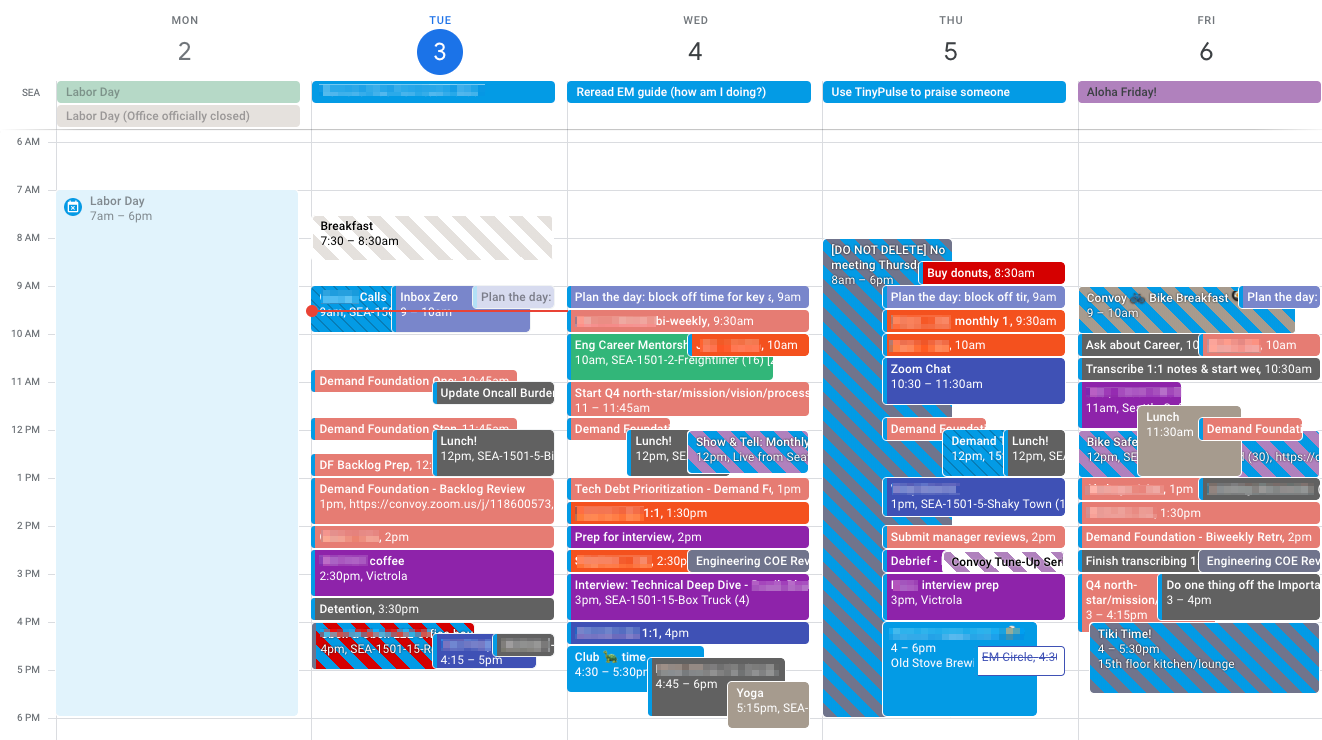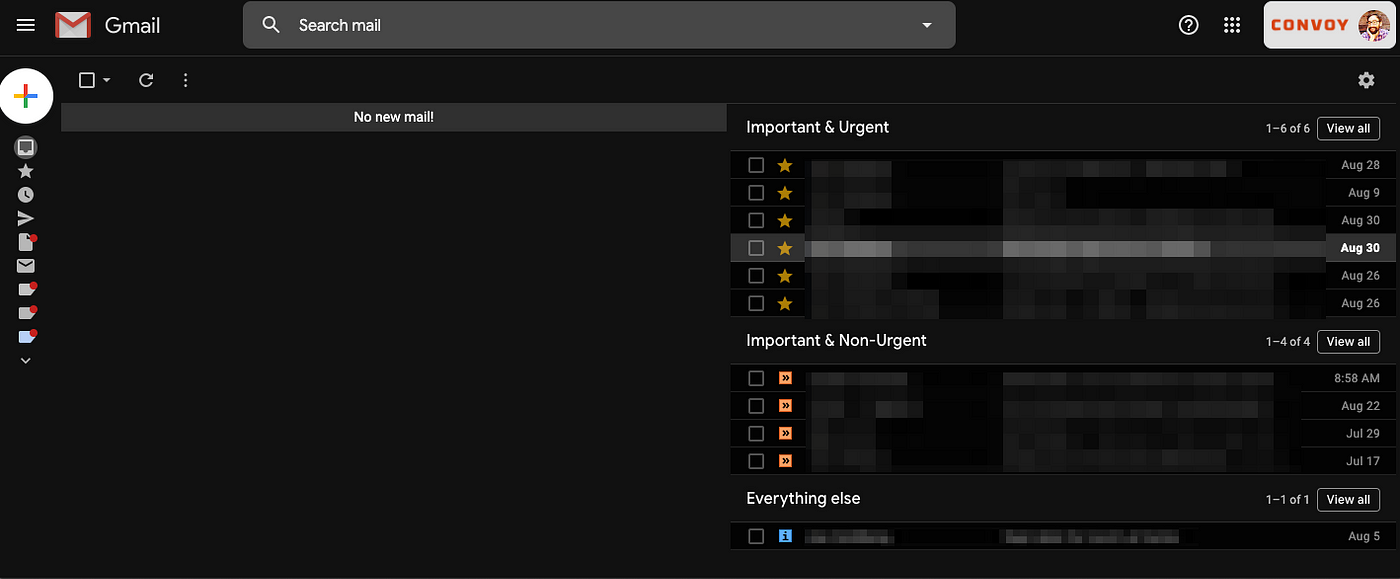From inbox-zero to todo-list-zero

The most Type-A calendar you’ll ever see
[Preamble to software engineers or anyone else on maker-time: you keep doing you, the following might sound absurdly overengineered. I wrote this article with managers in mind]
Inbox-Zero
I have a confession to make: I’m the type of person who gets to inbox-zero daily. I sheepishly admit this, because in a world where busy equals productive, it almost seems like a dereliction of duty to not have an inbox bursting at the seams.

Proof of Inbox Zero
Mission Accomplished, right? Inbox-Zero is the pinnacle of productivity achievements.
Well, here’s a second confession: my inbox-zero is more of a productivity sleight-of-hand, as I ruthlessly move emails that require my time and attention to my to-do list, which conveniently sits beside my inbox¹:

To-do lists are grouped by the “Urgent-Important Matrix” from 7 Habits of Highly Effective People²
So inbox-zero doesn’t mean sitting on the beach with a cocktail. It simply means I’ve triaged all incoming requests (for now) and have a sense of everything I need to do. (I push my own items directly onto my to-do lists, bypassing the inbox, by sending mail to a secret email address³).
Todo-list-Zero
Back when I was making the transition from Tech Lead to Actual Manager, my manager gave me some advice which seemed outlandish at the time: “as a manager, every item on your to-do list is an exception.” She meant it as an extreme lesson in delegation, in other words:
- try to delegate everything
- but keep the things on your own to-do list that you can’t delegate
- and see those as an opportunity to get better at delegation. (i.e. an opportunity to uplevel your people at new tasks, in the future)
Now that I’ve been managing for a while, I still see the wisdom in this, and I also take a second lesson from her advice:
Items on your to-do list are unfunded mandates unless they’re also on your calendar.
You can prioritize, bucket, and color-code your to-do list at nauseum but unless you make the time to actually DO them, the list is worthless as a productivity tool.
As a manager, your time is your most precious resource⁴. You’re constantly getting pulled into meetings, and unless you take control over your calendar, you’ll find it completely full of low-leverage activities. Your time belongs to you and nobody else. This applies equally to the CEO and the entry-level employee.
“Your calendar is SO full, how can you cope?”
I hear this from people trying to book meetings with me. The silly thing about the statement is that everyone fills their day with “work” (in the broadest definition of the word) so a new meeting will necessarily preempt something else. The only difference is that I’ve made it explicit by filling up my calendar with the blocks of time I think I’ll need to complete the highest priority tasks on my to-do list.

Salmon color = time spent on my team’s goals and/or improving its culture
You’ll note that I also use color-coding so I can see at-a-glance whether or not I’m spending my time on things that are helping me achieve my and my team’s goals. If an incoming invite doesn’t cleanly map to a calendar color, it’s a signal that it’s probably not valuable for me to spend my time on.
Summary/Philosophy
To sum this up:
- Your time belongs to you and nobody else. Even if you work for a salary.
- Inbox Zero: Stuff in your inbox that needs your attention should go immediately onto your to-do list.
- Todo List Zero: Stuff on your to-do list that needs more than a moment to resolve should get onto your calendar.
- Block out time in advance for #3, at the time of day where you get your best work done (figure this out if you don’t already know). Also block out time for self-initiated tasks: time to do nothing but think, time to learn and read, etc.
My closing thought is whether Step 2 is even necessary. Is there a good system where emails/slacks/whatever go directly onto one’s calendar? I may experiment with this, but I think the to-do list is still necessary in order to prioritize and generally provide a buffer between incoming requests and the expenditure of one’s time.
Thank you to Joanne Zhu for listening to me think out loud about this and help guide my thinking on the topic.
¹ I use a simplified version of GTD Gmail
³ See the link in footnote 1 for how to set this up.
⁴ As a mortal being, time is your most precious resource. Unlike money (and most other valuable things) you can never earn it back.